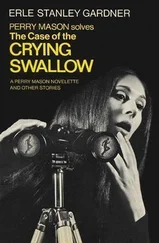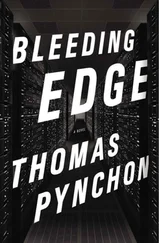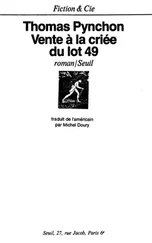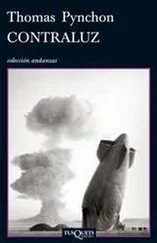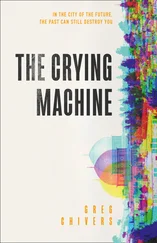Thomas Pynchon - The Crying of Lot 49
Здесь есть возможность читать онлайн «Thomas Pynchon - The Crying of Lot 49» весь текст электронной книги совершенно бесплатно (целиком полную версию без сокращений). В некоторых случаях можно слушать аудио, скачать через торрент в формате fb2 и присутствует краткое содержание. Жанр: Современная проза, на английском языке. Описание произведения, (предисловие) а так же отзывы посетителей доступны на портале библиотеки ЛибКат.
- Название:The Crying of Lot 49
- Автор:
- Жанр:
- Год:неизвестен
- ISBN:нет данных
- Рейтинг книги:4 / 5. Голосов: 1
-
Избранное:Добавить в избранное
- Отзывы:
-
Ваша оценка:
- 80
- 1
- 2
- 3
- 4
- 5
The Crying of Lot 49: краткое содержание, описание и аннотация
Предлагаем к чтению аннотацию, описание, краткое содержание или предисловие (зависит от того, что написал сам автор книги «The Crying of Lot 49»). Если вы не нашли необходимую информацию о книге — напишите в комментариях, мы постараемся отыскать её.
is considered by many to be Pynchon's most accessible novel, and is therefore the one most commonly read, whether to fulfill the syllabus of a literature course or simply for pleasure. Nevertheless, it remains an enigmatic book that has been analyzed, discussed, and dissected almost as much as
Even thirty years after publication it is still considered quite open to interpretation: some critics feel that it is ultimately meaningless and impossible to interpret, while others have found it to be rather cohesive, and even possessed by a set of ethical directives. Others, as J. Grant remarks, perhaps mindful of Oedipa's notion that "excluded middles" are "bad shit," have worked to find a functional interface between book and reader. All, however, agree that it is a vital work and a postmodern classic.
The Crying of Lot 49 — читать онлайн бесплатно полную книгу (весь текст) целиком
Ниже представлен текст книги, разбитый по страницам. Система сохранения места последней прочитанной страницы, позволяет с удобством читать онлайн бесплатно книгу «The Crying of Lot 49», без необходимости каждый раз заново искать на чём Вы остановились. Поставьте закладку, и сможете в любой момент перейти на страницу, на которой закончили чтение.
Интервал:
Закладка:
One day Cohen called to tell her that the final arrangements had been made to auction off Inverarity's stamp collection. The Tristero "forgeries" were to be sold, as lot 49. "And something rather disturbing, Miz Maas. A new book bidder has appeared on the scene, whom neither I nor any of the firms in the area have heard of before. That hardly ever happens." "A what?"
Cohen explained how there were floor bidders, who would attend the auction in person, and book bidders, who would send in their bids by mail. These bids would be entered in a special book by the auction firm, hence the name. There would be, as was customary, no public disclosure of persons for whom "the book" would be bidding.
"Then how do you know he's a stranger?" "Word gets around. He's being super-secretive- working through an agent, C. Morris Schrift, a very reputable, good man. Morris was in touch with the auctioneers yesterday to tell them his client wanted to examine our forgeries, lot 49, in advance. Normally there's no objection if they know who wants to see the lot, and if he's willing to pay all the postage and insurance, and get everything back inside of 24 hours. But Morris got quite mysterious about the whole thing, wouldn't tell his client's name or anything else about him. Except that as far as Morris knew, he was an outsider. So being a conservative house, naturally, they apologized and said no."
"What do you think?" said Oedipa, already knowing pretty much.
"That our mysterious bidder may be from Tristero," Cohen said. "And saw the description of the lot in the auction catalogue. And wants to keep evidence that Tristero exists out of unauthorized hands. I wonder what kind of a price they'll offer."
Oedipa went back to Echo Courts to drink bourbon until the sun went down and it was as dark as it would ever get. Then she went out and drove on the freeway for a while with her lights out, to see what would happen. But angels were watching. Shortly after midnight she found herself in a phone booth, in a desolate, unfamiliar, unlit district of San Narciso. She put in a station call to The Greek Way in San Francisco, gave the musical voice that answered a description of the acned, fuzz-headed Inamorato Anonymous she'd talked to there and waited, inexplicable tears beginning to build up pressure around her eyes. Half a minute of clinking glasses, bursts of laughter, sounds of a juke box. Then he came on.
"This is Arnold Snarb," she said, choking up.
"I was in the little boys' room," he said. "The men's room was full."
She told him, quickly, using up no more than a minute, what she'd learned about The Tristero, what had happened to Hilarius, Mucho, Metzger, Driblette, Fallopian. "So you are," she said, "the only one I have. I don't know your name, don't want to. But I have to know whether they arranged it with you. To run into me by accident, and tell me your story about the post horn. Because it may be a practical joke for you, but it stopped being one for me a few hours ago. I got drunk and went driving on these freeways. Next time I may be more deliberate. For the love of God, human life, whatever you respect, please. Help me."
"Arnold," he said. There was a long stretch of bar noise.
"It's over," she said, "they've saturated me. From here on I'll only close them out. You're free. Released. You can tell me."
"It's too late," he said. "For me?"
"For me." Before she could ask what he meant, he'd hung up. She had no more coins. By the time she could get somewhere to break a bill, he'd be gone. She stood between the public booth and the rented car, in the night, her isolation complete, and tried to face toward the sea. But she'd lost her bearings. She turned, pivoting on one stacked heel, could find no mountains either. As if there could be no barriers between herself and the rest of the land. San Narciso at that moment lost (the loss pure, instant, spherical, the sound of a stainless orchestral chime held among the stars and struck lightly), gave up its residue of uniqueness for her; became a name again, was assumed back into the American continuity of crust and mantle. Pierce Inverarity was really dead.
She walked down a stretch of railroad track next the highway. Spurs ran off here and there into factory property. Pierce may have owned these factories too. But did it matter now if he'd owned all of San Narciso? San Narciso was a name; an incident among our climatic records of dreams and what dreams became among our accumulated daylight, a moment's squall-line or tornado's touchdown among the higher, more continental solemnities-storm-systems of group suffering and need, prevailing winds of affluence. There was the true continuity, San Narciso had no boundaries. No one knew yet how to draw them. She had dedicated herself, weeks ago, to making sense of what Inverarity had left behind, never suspecting that the legacy was America.
Might Oedipa Maas yet be his heiress; had that been in the will, in code, perhaps without Pierce really knowing, having been by then too seized by some headlong expansion of himself, some visit, some lucid instruction? Though she could never again call back any image of the dead man to dress up, pose, talk to and make answer, neither would she lose a new compassion for the cul-de-sac he'd tried to find a way out of, for the enigma his efforts had created.
Though he had never talked business with her, she had known it to be a fraction of him that couldn't come out even, would carry forever beyond any decimal place she might name; her love, such as it had been, remaining incommensurate with his need to possess, to alter the land, to bring new skylines, personal antagonisms, growth rates into being. "Keep it bouncing," he'd told her once, "that's all the secret, keep it bouncing." He must have known, writing the will, facing the spectre, how the bouncing would stop. He might have written the testament only to harass a one-time mistress, so cynically sure of being wiped out he could throw away all hope of anything more. Bitterness could have run that deep in him. She just didn't know. He might himself have discovered The Tristero, and encrypted that in the will, buying into just enough to be sure she'd find it. Or he might even have tried to survive death, as a paranoia; as a pure conspiracy against someone he loved. Would that breed of perversity prove at last too keen to be stunned even by death, had a plot finally been devised too elaborate for the dark Angel to hold at once, in his humorless vice-president's head, all the possibilities of? Had something slipped through and Inverarity by that much beaten death?
Yet she knew, head down, stumbling along over the cinderbed and its old sleepers, there was still that other chance. That it was all true. That Inverarity had only died, nothing else. Suppose, God, there really was a Tristero then and that she had come on it by accident. If San Narciso and the estate were really no different from any other town, any other estate, then by that continuity she might have found The Tristero anywhere in her Republic, through any of a hundred lightly-concealed entranceways, a hundred alienations, if only she'd looked. She stopped a minute between the steel rails, raising her head as if to sniff the air. Becoming conscious of the hard, strung presence she stood on -knowing as if maps had been flashed for her on the sky how these tracks ran on into others, others, knowing they laced, deepened, authenticated the great night around her. If only she'd looked. She remembered now old Pullman cars, left where the money'd run out or the customers vanished, amid green farm flatnesses where clothes hung, smoke lazed out of jointed pipes.
Were the squatters there in touch with others, through Tristero; were they helping carry forward that 300 years of the house's disinheritance? Surely they'd forgotten by now what it was the Tristero were to have inherited; as perhaps Oedipa one day might have. What was left to inherit? That America coded in Inverarity's testament, whose was that? She thought of other, immobilized freight cars, where the kids sat on the floor planking and sang back, happy as fat, whatever came over the mother's pocket radio; of other squatters who stretched canvas for lean-tos behind smiling billboards along all the highways, or slept in junkyards in the stripped shells of wrecked Plymouths, or even, daring, spent the night up some pole in a lineman's tent like caterpillars, swung among a web of telephone wires, living in the very copper rigging and secular miracle of communication, untroubled by the dumb voltages flickering their miles, the night long, in the thousands of unheard messages. She remembered drifters she had listened to, Americans speaking their language carefully, scholarly, as if they were in exile from somewhere else invisible yet congruent with the cheered land she lived in; and walkers along the roads at night, zooming in and out of your headlights without looking up, too far from any town to have a real destination. And the voices before and after the dead man's that had phoned at random during the darkest, slowest hours, searching ceaseless among the dial's ten million possibilities for that magical Other who would reveal herself out of the roar of relays, monotone litanies of insult, filth, fantasy, love whose brute repetition must someday call into being the trigger for the unnamable act, the recognition, the Word. How many shared Tristero's secret, as well as its exile? What would the probate judge have to say about spreading some kind of a legacy among them all, all those nameless, maybe as a. first installment? Oboy. He'd be on her ass in a microsecond, revoke her letters testamentary, they'd call her names, proclaim her through all Orange County as a redistributionist and pinko, slip the old man from Warpe, Wistfull, Kubitschek and McMingus in as administrator de bonis non and so much baby for code, constellations, shadow-legatees. Who knew? Perhaps she'd be hounded someday as far as joining Tristero itself, if it existed, in its twilight, its aloofness, its waiting. The waiting above all; if not for another set of possibilities to replace those that had conditioned the land to accept any San Narciso among its most tender flesh without a reflex or a cry, then at least, at the very least, waiting for a symmetry of choices to break down, to go skew. She had heard all about excluded middles; they were bad shit, to be avoided; and how had it ever happened here, with the chances once so good for diversity? For it was now like walking among matrices of a great digital computer, the zeroes and ones twinned above, hanging like balanced mobiles right and left, ahead, thick, maybe endless. Behind the hieroglyphic streets there would either be a transcendent meaning, or only the earth. In the songs Miles, Dean, Serge and Leonard sang was either some fraction of the truth's numinous beauty (as Mucho now believed) or only a power spectrum. Tremaine the Swastika Salesman's reprieve from holocaust was either an injustice, or the absence of a wind; the bones of the GI's at the bottom of Lake In-verarity were there either for a reason that mattered to the world, or for skin divers and cigarette smokers. Ones and zeroes. So did the couples arrange themselves. At Vesperhaven House either an accommodation reached, in some kind of dignity, with the Angel of Death, or only death and the daily, tedious preparations for it. Another mode of meaning behind the obvious, or none. Either Oedipa in the orbiting ecstasy of a true paranoia, or a real Tristero. For there either was some Tristero beyond the appearance of the legacy America, or there was just America and if there was just America then it seemed the only way she could continue, and manage to be at all relevant to it, was as an alien, unfurrowed, assumed full circle into some paranoia.
Читать дальшеИнтервал:
Закладка:
Похожие книги на «The Crying of Lot 49»
Представляем Вашему вниманию похожие книги на «The Crying of Lot 49» списком для выбора. Мы отобрали схожую по названию и смыслу литературу в надежде предоставить читателям больше вариантов отыскать новые, интересные, ещё непрочитанные произведения.
Обсуждение, отзывы о книге «The Crying of Lot 49» и просто собственные мнения читателей. Оставьте ваши комментарии, напишите, что Вы думаете о произведении, его смысле или главных героях. Укажите что конкретно понравилось, а что нет, и почему Вы так считаете.


